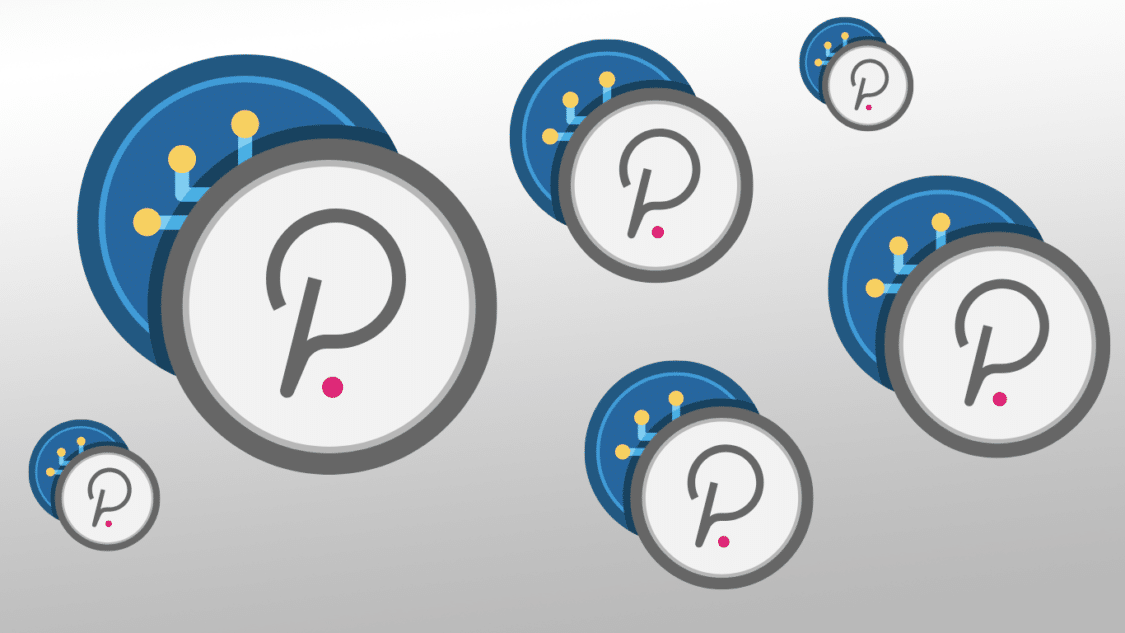When it comes to the crypto market, there is competition; who are the Ethereum top competitors? The Ethereum network upgraded to the Merge in September. This switched the blockchain from proof of work to proof of stake. The proof of stake network was introduced to improve processing times, lower network fees, and lower energy consumption.
Ethereum, the world’s second-largest cryptocurrency, faces competition from other blockchain platforms offering similar capabilities and aiming to disrupt various industries. Some of the Ethereum top competitors include platforms like Binance Smart Chain, Cardano, Solana, Polkadot, and Tezos. These platforms have gained traction in Blockchain space and have unique features and advantages.
Binance Smart Chain (BSC), launched by the Binance exchange, is known for its high transaction speed and low transaction fees, making it a popular choice for decentralized applications (dApps) that require fast and inexpensive transactions. On the other hand, Cardano is a blockchain platform that uses a proof-of-stake (PoS) consensus mechanism. It aims to provide a secure and scalable blockchain solution.
Another Ethereum top competitor, Solana, boasts high throughput and low latency, making it suitable for high-performance applications like decentralized finance (DeFi) and gaming. Polkadot, created by the co-founder of Ethereum, is a multi-chain network that allows different blockchains to interoperate, facilitating interoperability and scalability. Lastly, Tezos is a PoS blockchain platform known for its on-chain governance mechanism, which allows token holders to vote on protocol upgrades.
These platforms are among the Ethereum top competiors, challenging its dominance in the blockchain space and driving innovation in the development of decentralized applications and blockchain solutions. With the evolution of the Blockchain space, competition among these platforms is expected to intensify, leading to further advancements in blockchain technology and its potential applications across various industries.
Lets enlist here some of the ethereum top competitors
Solana

The process of validating transactions on Solana is through “proof of history.” Many institutions have shown support for the asset. Referring to it as the “Visa of the digital asset ecosystem.”
Top venture capital firm Andreesen Horowitz backs the asset. In Web 3, this is only sometimes helpful. Decentralization extremists may be put off by excessive institutional interest. Meanwhile, Ethereum has a committed user base that many believe is here to stay.
Solana transactions are completed relatively quickly, with fees being a fraction of a cent per transaction. Since its launch in 2022, Solana has completed more than 50 billion transactions. This asset is better viewed as a more mainstream Ethereum network.
Cardano

Cardano is a more environmentally safe alternative to Ethereum. They released a decentralized finance exchange, SundaeSwap. We’ll have to wait and see if Cardano can overthrow Ethereum or if the blockchain space will experience similar learning curves as more people conduct transactions.
Tezos
Tezos is another addition to the list of Ethereum top competitors. Many use this smart contract blockchain to issue new digital assets. In addition, it can create decentralized applications known as dapps. The Tezos network uses the proof of stake mechanism and was among the first to do so. Many projects about fashion, gaming, music, and art have launched on Tezos.
Users of the Tezos network who stake 8,000 tokens receive voting rights. This gives them a say in the governance of the network.
Polkadot

Interoperability is the main feature of Polkadot. In addition, the infrastructure links multiple blockchains into a single network, allowing them to exchange data without jeopardizing its security. The essential aspect of the Web 3 industry is interoperability. This way, goods, services, and money will circulate inside what many believe to be a decentralized digital environment. Strong interoperability also makes it possible for cross-chain collaboration, which can encourage greater collaboration among protocols.
Hyperledger
Hyperledger is an open-source collaborative project that aims to advance cross-industry blockchain technologies. The Linux Foundation hosts it and encompasses a global community of organizations and developers collaborating to develop and promote enterprise-grade distributed ledger frameworks and tools.
Hyperledger is not a single blockchain platform but a collection of different blockchain frameworks designed for various use cases and industries. These frameworks include:
- Hyperledger Fabric: A blockchain framework designed for use in enterprise settings. It provides a modular and flexible architecture, which allows for the development of private, permissioned blockchains space with customizable consensus mechanisms, smart contracts, and privacy features.
- Hyperledger Sawtooth: a modular and scalable blockchain platform emphasizing flexibility and simplicity.
- Hyperledger Besu: Hyperledger Besu is an Ethereum-based blockchain framework compatible with the Ethereum Virtual Machine (EVM). It allows for deploying private or public Ethereum-like networks and supports the Ethereum JSON-RPC API, making it interoperable with existing Ethereum tools and applications.
- Hyperledger Indy: Hyperledger Indy is a blockchain framework designed explicitly for decentralized identity management. It provides tools and libraries for creating and managing digital identities in a privacy-preserving and secure manner, focusing on interoperability and self-sovereign identity (SSI) principles.
- Hyperledger Caliper: Hyperledger Caliper is a benchmarking tool used to measure the scalability of different Hyperledger frameworks. It provides a standardized way to compare the performance of other blockchain platforms and frameworks, helping developers and organizations make informed choices.
Hyperledger aims to foster collaboration, innovation, and interoperability among stakeholders in the blockchain ecosystem, including enterprises, developers, and researchers. It provides a framework-agnostic approach and encourages open governance and community-driven development to advance the adoption and maturity of blockchain technologies in enterprise settings.
BitPay
BitPay is a global cryptocurrency payment service provider that enables businesses and individuals to accept and process cryptocurrency payments—founded in 2011, with its headquarters in Atlanta, Georgia, USA. BitPay’s mission is to make it easy for businesses to accept cryptocurrencies for payments providing a bridge between the good old finance and the world of cryptocurrencies.
BitPay offers a range of services that allow merchants and businesses to accept and process cryptocurrency payments, including:
- Payment processing: BitPay provides payment processing services that enable businesses to accept payments in various cryptocurrencies, including Bitcoin (BTC), Bitcoin Cash (BCH), Ethereum (ETH), and stablecoins, among others. Businesses can settle payments in their local currency or keep the payments in cryptocurrency.
- Invoice processing: BitPay allows businesses to generate invoices in cryptocurrencies, making it easy for customers to pay with cryptocurrencies. Invoices can be created in different fiat currencies, and customers can make payments using their preferred cryptocurrency wallets.
- Point-of-sale (POS) solutions: BitPay offers solutions that allow businesses to accept cryptocurrency payments in brick-and-mortar retail settings. This includes integrating with popular point-of-sale systems and using hardware terminals to process cryptocurrency payments.
- Wallets and billing tools: BitPay provides cryptocurrency wallets for businesses and individuals, allowing them to send, receive, and manage their cryptocurrency holdings. BitPay also offers billing tools that enable companies to create and manage recurring cryptocurrency payments.
- Settlement options: BitPay provides businesses with different options for settling cryptocurrency payments, including bank account transfers, prepaid debit cards, and cryptocurrency wallets. This allows companies to choose the settlement method that best fits their needs.
- Compliance and security: BitPay is committed to compliance with applicable regulations and has implemented various security measures to protect customer data and funds. This includes features such as multi-signature wallets, two-factor authentication (2FA), and compliance with Know Your Customer (KYC) and Anti-Money Laundering (AML) regulations.
BlockCypher
BlockCypher is a blockchain infrastructure and development platform that provides tools and services for managing your blockchain applications. They were founded in 2013 in Redwood City, California, USA. BlockCypher aims to empower developers and businesses with reliable, scalable, and secure blockchain solutions.
BlockCypher offers various services and APIs (Application Programming Interfaces) that enable developers to interact with different blockchain networks, including Bitcoin, Ethereum, Litecoin, Bitcoin Cash, and more. Some of the critical features of BlockCypher’s platform include the following:
- Blockchain APIs: BlockCypher provides a range of APIs that allow developers to interact with blockchain networks, including APIs for transactions, addresses, blocks, and more. These APIs provide access to the underlying blockchain data, allowing developers to build custom blockchain applications and services.
- Webhooks and Events: BlockCypher supports webhooks and event notifications, allowing developers to receive real-time updates about transactions, addresses, and blocks on the blockchain. This enables developers to build applications that respond to blockchain events in real-time, enhancing their applications’ functionality and user experience.
- Wallet APIs: BlockCypher provides APIs for managing blockchain wallets, including APIs for creating and managing wallets, generating addresses, and sending and receiving transactions. These APIs offer developers the tools to build cryptocurrency wallets or integrate blockchain wallet functionality into their applications.
- Data APIs: BlockCypher offers data APIs that provide access to historical and real-time blockchain data, including transaction data, block data, and address data. These APIs enable developers to retrieve and analyze blockchain data for various use cases, such as auditing, reporting, and analytics.
- Microtransaction APIs: BlockCypher supports microtransaction APIs, which allow developers to send and receive tiny amounts of cryptocurrency, known as microtransactions, with low transaction fees.
- Developer Tools: BlockCypher provides various developer tools, including software development kits (SDKs) and documentation. These tools provide developers with the resources and support they need to develop robust and secure blockchain applications.
BlockCypher has been used by many developers and businesses to build various types of blockchain applications, including payment systems, smart contracts, supply chain solutions, identity verification, and more. By providing a comprehensive blockchain infrastructure and development platform, BlockCypher aims to accelerate the adoption of blockchain technology and enable innovative blockchain-based solutions.
BitFury
BitFury is a technology company that specializes in blockchain and cryptocurrency solutions. BitFury’s mission is to accelerate the adoption of blockchain technology by providing innovative products, services, and solutions for businesses, governments, and individuals.
BitFury offers a range of products and services that cover different aspects of the blockchain ecosystem, including:
- Blockchain Infrastructure: BitFury provides blockchain infrastructure solutions, including hardware and software products for building, deploying, and managing blockchain networks. This includes their proprietary Exonum blockchain platform, a customizable and scalable blockchain solution that can be used for supplying chain management, digital identity, and voting systems.
- Mining Hardware: BitFury is known for manufacturing and selling advanced cryptocurrency mining hardware, including Application-Specific Integrated Circuit (ASIC) chips and mining servers. These mining hardware solutions are designed to provide high-performance and energy-efficient mining capabilities for various cryptocurrencies, such as Bitcoin and Ethereum.
- Blockchain Consulting and Development: BitFury offers consulting and development services to help businesses and governments implement blockchain solutions. This includes technical consulting, blockchain strategy development, innovative contract development, and custom blockchain solution development. BitFury also provides training and educational resources to help organizations understand and leverage the potential of blockchain technology.
- Lightning Network: BitFury has developed and supports the Lightning Network, a layer-level two scaling solution for Bitcoin. The Lightning Network aims to enable faster and cheaper Bitcoin transactions by leveraging off-chain channels. BitFury has contributed to the development of Lightning Network technology and its adoption within the Bitcoin ecosystem.
- Data Centers and Hosting: BitFury operates data centers and provides hosting services for blockchain networks and mining operations. These data centers are designed to provide a secure and reliable infrastructure for blockchain networks, including high-performance computing power and network connectivity.
- Blockchain Security: BitFury offers various security solutions for blockchain networks, including multi-signature wallets, hardware security modules (HSMs), and other security tools and services. These solutions are designed to protect the integrity and confidentiality of blockchain transactions and data.
BitFury has worked with many clients, including governments, enterprises, and startups, to develop and implement blockchain solutions for various industries, including finance, supply chain, healthcare, and more. By providing a comprehensive suite of blockchain products and services, BitFury aims to drive the adoption of blockchain technology and empower organizations to leverage the benefits of decentralized and secure systems.
Closing Thoughts
Certainly, Ethereum has been one of the most popular and widely adopted smart contract blockchain platforms since its launch in 2015. However, there are now several newer smart contract blockchains that offer different benefits and features and are considered Ethereum top competitors.
For more news updates, visit our homepage now and see our latest news article. Want to learn more about trading? Visit our education page now and learn for FREE!
Best Technical Analysis Indicators

